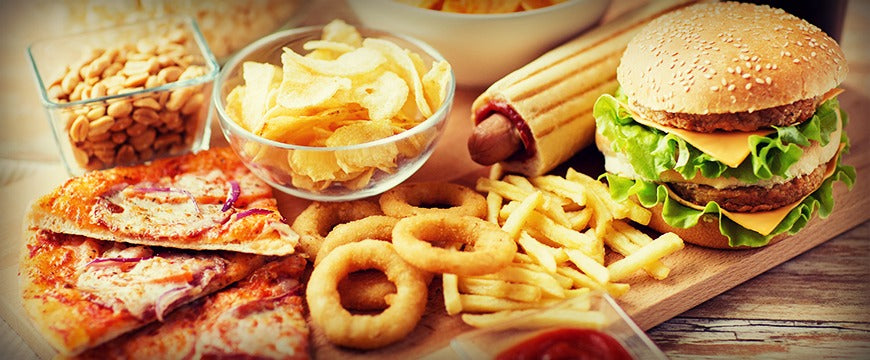
Trouble Sleeping? Fatty Foods May Be the Cause of Your Insomnia
|
|
Time to read 2 min
|
|
Time to read 2 min
We’ve all hit the “after lunch lull,” but what if it’s caused not by eating itself, but what you eat? According to recent studies by sleep researchers in both the United States and Australia, there appears to be a direct link between diets that are high in fat and a lack of quality sleep. Both studies observed two groups of participants over an eight-week period of time.
One group was given a diet that was high in fat, while the other ate more balanced meals. Not surprisingly, the first group gained weight, but they also showed signs of sleep deprivation, including irritability, low levels of cognitive functioning, and daytime sleepiness. There was also evidence that the timing of meals played a part in the ability to get the high-quality sleep that adults need to make the most out of their day.
Those that ate a fatty meal (such as a cheeseburger and fries) before bedtime had much more difficulty getting to (and staying) asleep. Compared to those that ate a lighter meal several hours before bed, study participants in the high-fat diet group stayed awake for almost three times the length of time. And it was shown with sleep observation technology that those in the high-fat diet group suffered more sleep disturbances, such as tossing and turning. Those that ate a fatty diet were also shown to suffer more abnormal breathing during the night, as well as less time in the REM (rapid eye movement) sleep stage, which has been shown to be responsible for assisting in the memory and learning functions of the brain.
Previous studies have shown that the more REM sleep that you get the during the night, the higher your energy levels will be the next day, making REM sleep an important part of the sleep cycle when it comes to the ability to focus and function while working. So, what can you do to make sure that you don’t suffer from insomnia or poor sleep, and cash in on the benefits of a good night’s rest? Sleep and health experts recommend several simple tips for getting better sleep:
Be sure to eat balanced meals throughout the day
Spread out your daily consumption of fat over several meals
Avoid fatty foods at lunch and dinner
Don’t eat foods that are high in fat content close to bedtime
Both studies indicated that it was important to avoid fatty foods later in the day, as even just a dinner with a high fat content was capable of causing trouble falling asleep, increased sleep disturbances throughout the night, and less time spent in the beneficial REM stage of sleep.
What we eat during the day has been shown to have lasting effects when it comes to sleep quality, long after the meal has been eaten. If you keep these tips and tricks for a healthier diet during your day in mind, better nights (and higher quality sleep) will be sure to follow!